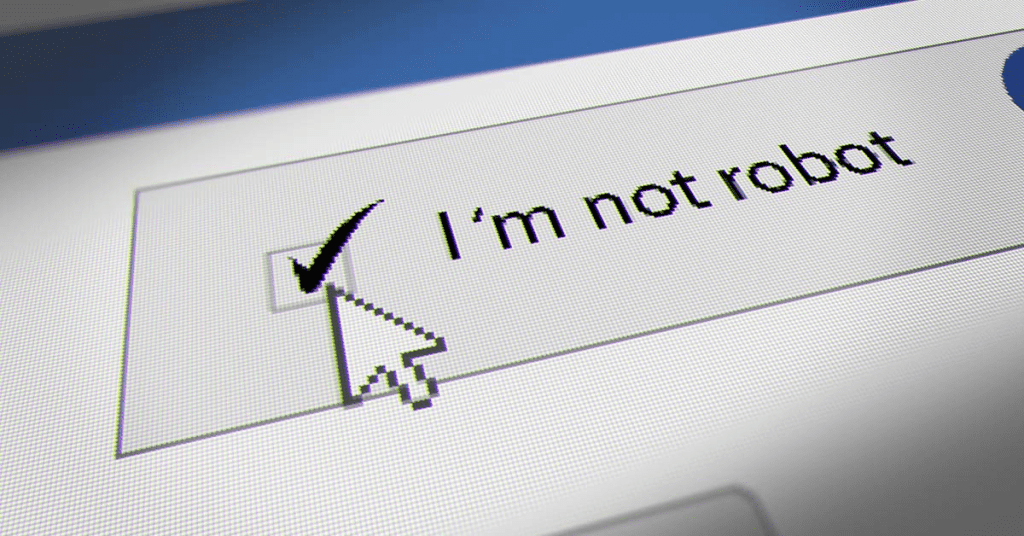If you’ve spent time online, you’ve likely encountered the “I am not a robot” CAPTCHA checkbox. At first, it might seem like a simple security measure to confirm you’re human. But have you ever wondered how a mere click can prove your humanity? It turns out, this seemingly straightforward task does more than meets the eye. Let’s uncover the surprising reality behind CAPTCHA and why it leaves some users feeling uneasy.
The Real Purpose Behind the ‘I Am Not a Robot’ Test

While most people assume ticking the “I am not a robot” box is as simple as it appears, the truth is more complex. The magic of this CAPTCHA isn’t in the click itself. It’s in what happens before and after you click that matters.
A clip from the show QI, featuring Sandi Toksvig, recently resurfaced to explain CAPTCHA’s true nature. In the clip, Toksvig reveals that the checkbox goes beyond a mere yes-or-no answer—it’s about your online behavior before you click.
How ‘I Am Not a Robot’ Actually Functions
So, how does this CAPTCHA work? According to Toksvig, it’s not just the action of checking a box. It analyzes your prior online behavior, including your browsing history, mouse movements, and page interactions. Whether it’s watching a cat video, scrolling through social media, or checking your email, these actions create a profile proving your humanness.
This may sound eerie, but this data collection is crucial for identifying bots. Unlike humans, bots don’t engage with content naturally. They lack the casual browsing and interaction with web elements, which CAPTCHA can detect without solely relying on a checkbox.
Your Mouse Movements Can Be a Clue
Another intriguing aspect of CAPTCHA is its ability to track mouse movements. How you move your cursor can indicate your humanity. Humans generally move their mouse in unpredictable zigzag patterns, pausing and changing speed. Bots, however, tend to move mechanically. By analyzing your cursor movement towards the checkbox, CAPTCHA gathers additional proof that you’re not a bot.
This subtle method allows websites to filter out bots without requiring complex tests for every login.
The Creepy Factor: A Privacy Dilemma
Given how CAPTCHA operates, it’s no surprise some users find it unsettling. As pointed out on TikTok, the idea that websites analyze your browsing history and online behavior challenges privacy norms. One user commented, “So a robot checks if I’m a robot?” while another added, “Feels invasive, to be honest.”
It’s understandable why this concerns people. We’re used to controlling our online activities, and the notion that CAPTCHA might scan our data feels intrusive. This raises a crucial question: Is giving up some privacy worth the security CAPTCHA provides?
What Are CAPTCHA Tests Meant to Accomplish?
CAPTCHA, short for Completely Automated Public Turing test to tell Computers and Humans Apart, was designed to prevent bots from misusing websites. Bots are known for spamming, hacking, and attempting to crack passwords through rapid attempts.
To tackle this, CAPTCHA acts as a hurdle that humans can overcome, but bots find challenging. Tasks like identifying objects in images require human perception skills, which are complex for bots. Although bots excel at hacking code, they flounder at image recognition.
The Role of Cookies, Location, and Cached Data
CAPTCHA doesn’t just focus on immediate behavior—it also examines other digital markers. Post-CAPTCHA, it may access cookies, cached data, and your general location to determine credibility, helping differentiate between humans and bots.
For instance, fast page-hopping might trigger suspicion, as bots often do this for automated tasks. However, normal browsing patterns indicated by cookies suggest genuine human activity.
Why CAPTCHA Remains Crucial as Bots Evolve
Despite unsettling aspects, CAPTCHA’s purpose is crucial. With bots becoming smarter, websites need CAPTCHA to protect against threats. Bots can hack passwords and scrape data without checks like CAPTCHA. By blending behavioral analysis with traditional tasks, CAPTCHA adapts to counter sophisticated bots.
Conclusion: Privacy vs. Security—What’s Your Stance?
The revelation about CAPTCHA’s complexity ignites a discussion on privacy and security. Though some are uneasy about browsing analysis, others find the security tradeoff valuable against bot attacks.
Regardless of how you feel, CAPTCHA is here to stay as a staple in defending against online threats. Next time you click “I am not a robot,” consider the behind-the-scenes action. The delicate balance between privacy and security is ongoing, prompting you to decide what you’re willing to trade for a safer internet.